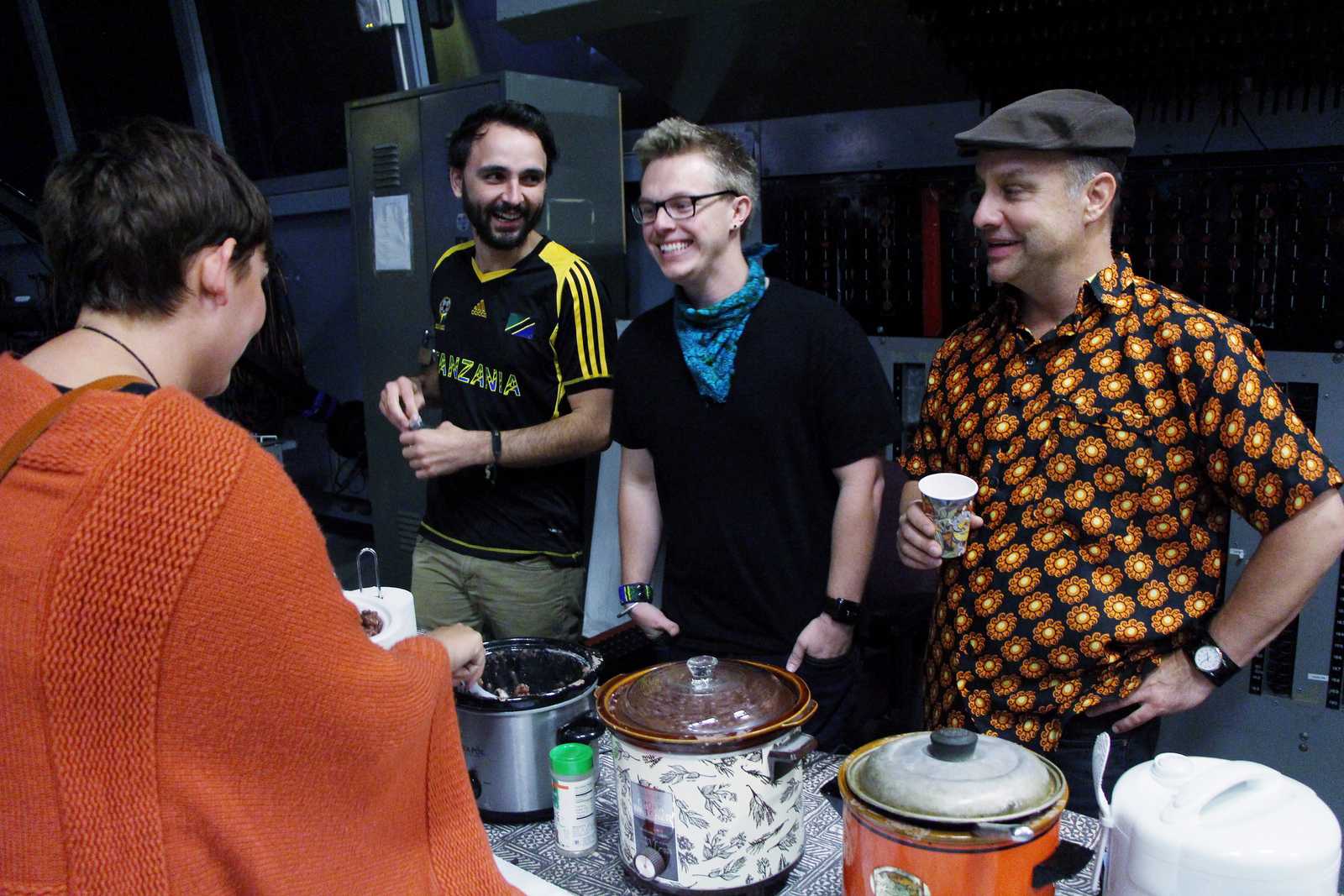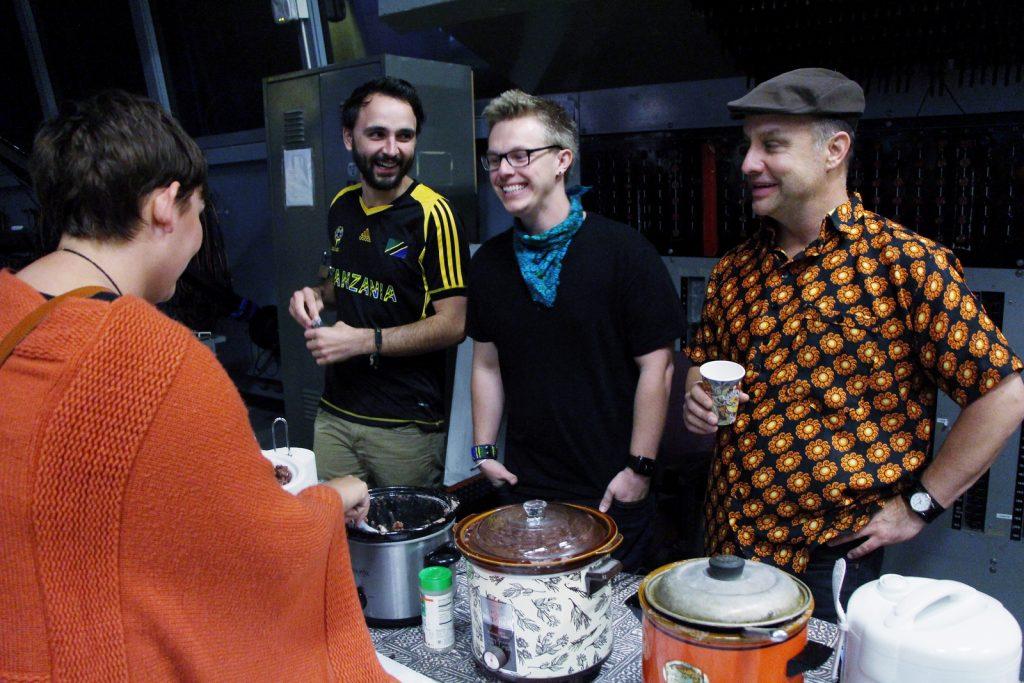
A two-sequence course called electronic media and social justice, or BECA 581, gave four students the opportunity to use the production skills they learned at the University and travel to Tanzania over the summer to create promotional videos for two not-for-profit organizations.
The crowd sat captivated, as they watched a video about a school in Tanzania, projected in Studio One Thursday, Oct. 10 in the Creative Arts Building. They listened to primary school children talk about their love for education and what they wanted to be when they grew up, despite all the financial worries that surround them.
“In the spring, the students work together to produce a video for a local, not-for-profit organization, here in the Bay Area and then in the summer, they travel to another country and produce a video for a non-governmental organization or NGO in that country,” said Betsy Blosser, a broadcast and electronic communication arts professor.
The team that traveled to Tanzania comprised of four undergraduate BECA majors; Kimberlee Walker, David Garcia, Kellen Balla and James Baumann. One graduate student, Brian Favorite, accompanied the team and assisted students with their productions, along with Blosser herself. Prior to traveling to Tanzania, the students worked with the Edgewood Center for Children and Families as part of their local project and produced two promotional videos for them, alongside other students who were unable to take part in the second half of the course later in the summer.
Blosser teaches this class every spring and has taken groups to Ghana, India, Guatemala, Thailand, Peru, El Salvador and Brazil. Blosser and her team of students reflected upon the memorable experiences they encountered as they set foot far outside of their comfort zones and landed halfway across the world in the town of Karatu, Tanzania.
“The first time I took Betsy’s class was in Spring 2011 and at that time they went to Africa too, but I wasn’t able to go then,” said Walker. “I just had to go back with them so I saved and I was able to purchase a ticket and go for this program. One of the reasons I did that was because I see how important media is and how you can use it to showcase so many different issues in the world,”
As the doors opened for the screening event at 7 p.m., over 40 people filled the studio and picked up a plate of authentic African food prepared by the student producers, and sat themselves before the big screen. Members of the audience were also able to purchase colorful bags or shirts made from different African fabrics as they waited for the show to begin at 7:30 p.m.
“The videos produced by these students are extremely professional and we have been very grateful for all the work that they put into making them, ” said Matthew Madaus, the CEO of the Edgewood Center for Children and Families, who was also present at the screening.
The students plan to send the video back to Karatu to the people at Tumaini Junior School and the Lake Eyasi Girls Vocation Training Centre for more feedback. According to student editor, David Garcia, once the final version of the video is complete they will upload it for the public to view.








